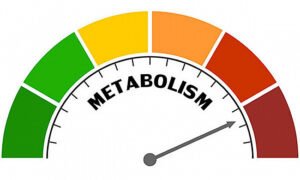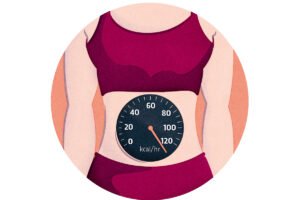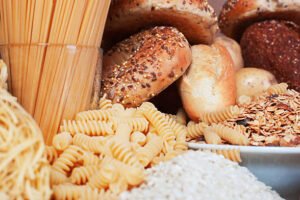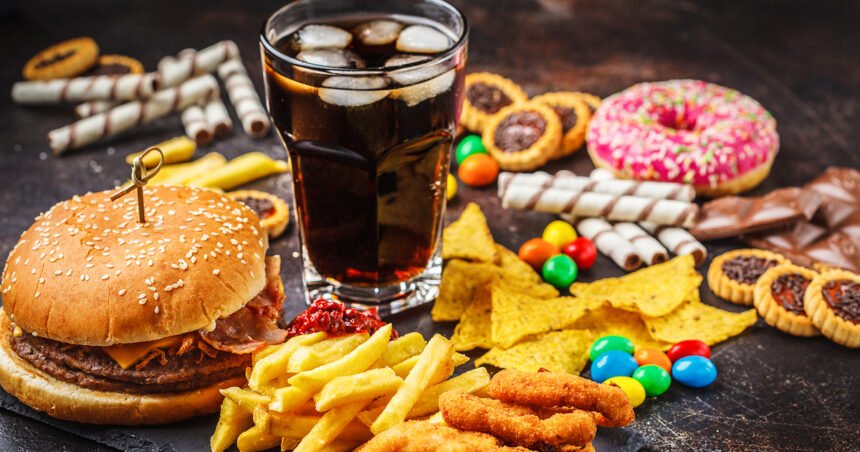What is processed food?
Processed food generally describes any food that has been altered from its natural state. Processed foods are generally thought to be inferior to unprocessed foods. The term may suggest that a packaged food contains many ingredients, perhaps even artificial colours, flavours or other chemical additives. Often referred to as convenient or prepared foods.
Why are processed foods harmful to the metabolism?

We live in a world where processed food is easier and cheaper than fresh unprocessed food. Research has shown that almost 60% of the food purchased is highly processed food. Although a certain amount of processing is required to ensure the safety of perishable foods such as dairy and meat products, highly processed foods are described as harmful to health, mainly because they slow down metabolism and cause many health conditions. Ingredients such as salt, sugar and fat are sometimes added to make the taste more appealing and can lead to weight gain, diabetes and high blood pressure.
What are the categories of processed foods?
Based on the NOVA classification system, foods are grouped into 4 categories according to the degree of processing they have undergone.

The four categories can be distinguished as follows:
Unprocessed or minimally processed foods
Unprocessed (or natural) foods are edible parts of plants (seeds, fruits, leaves, stems, roots) or animals (muscles, offal, eggs, milk), as well as fungi, algae and water, after separation from nature. Minimally processed foods are natural foods modified by processes such as removal of inedible or undesirable parts, drying, baking, boiling, non-alcoholic fermentation, pasteurisation, chilling, freezing. These processes are designed to preserve natural foods, make them suitable for storage or make them safe or edible or more enjoyable to eat.
Processed cooking ingredients
Processed cooking ingredients, such as oils, butter, sugar and salt, are substances derived from Group 1 foods or from nature by processes involving pressing, milling and drying. The purpose of such processes is to make durable products that are suitable for use in home and restaurant kitchens for the preparation, seasoning and cooking of Group 1 foods and for the preparation of varied and enjoyable home-cooked meals such as stews, soups and broths, salads, breads, preserves, beverages and desserts. They are not intended to be eaten on their own and are usually used in combination with Group 1 foods to prepare fresh beverages, dishes and meals.
Processed food
Processed foods, such as bottled vegetables, canned fish, fruit in syrup, cheeses and fresh breads, are essentially prepared by adding salt, oil, sugar or other substances from Group 2 foods to Group 1 foods. The processes include various preservation or cooking methods and, in the case of bread and cheese, non-alcoholic fermentation. Most processed foods have two or three ingredients and are identifiable as modified versions of Group 1 foods. They are edible on their own or, more commonly, in combination with other foods. The purpose of the processing here is to increase the resistance of Group 1 foods or to modify or enhance their sensory properties.
Highly processed foods
Highly processed foods are preparations of ingredients, mainly for exclusive industrial use, usually created by a series of industrial technical processes.
The manufacturing processes for highly processed foods usually involve techniques such as extrusion, moulding and pre-frying, together with the addition of various additives, including those to improve flavour and colour.
Examples of such foods may include:
- carbonated soft drinks,
- reconstituted fruit juices
- margarine
- reconstituted meat products, meat substitutes of plant origin and certain breakfast cereals.
- certain bakery products, snacks, flavoured yoghurts, candies and ready-to-heat dishes also fall in this category when they contain foodstuffs with no nutritional value or additives
Food processing can have potentially undesirable consequences. These may include:
- loss of nutrients (e.g. heating can reduce vitamin C levels),
- formation of toxic compounds (e.g. due to drying, refining or high-temperature cooking),
- adding high amounts of fat, sugar and/or salt and changes in the form of food ((e.g. solid to liquid) that can lead to overeating.
How do processed foods affect metabolism?

It is now clear that processed foods are not good for us and our health. In fact, they cause more harm. See how processed foods can affect metabolism.
- Αυξάνουν την αντίσταση στην ινσουλίνη και αναστέλλουν την ευαισθησία της.
- Μπορούν να διαταράξουν την ηπατική λειτουργία.
- Προκαλούν οξειδωτικό στρες στον οργανισμό, τον μεγαλύτερο λόγο για καρκίνο
- Προκαλούν ανισορροπία στο μικροβίωμα του εντέρου, προκαλώντας διαταραχές του γαστρεντερικού συστήματος.
- Τα τρανς λιπαρά που προστίθενται κατά τη βιομηχανική παρασκευή των τροφίμων προάγουν τη φλεγμονή στο σώμα και αυξάνουν το κυτταρικό στρες.
Risk factors and warning signs
Because of the harmful effects caused by processed foods, people who consume large amounts of them , cause conditions such as obesity and metabolic syndrome. If you have three or more of the following risk factors, you should minimize or avoid processed foods.
- Υψηλά τριγλυκερίδια ή λήψη φαρμάκων για τη μείωση των επιπέδων τους
- Χαμηλή HDL (καλή χοληστερόλη) και υψηλή LDL (κακή χοληστερόλη)
- Υψηλή πίεση του αίματος
- Υψηλή γλυκόζη αίματος νηστείας ή απαιτείται φαρμακευτική αγωγή για να τεθεί υπό έλεγχο η υψηλή γλυκόζη αίματος
- Άγχος και κατάθλιψη
- Καρκίνος
If you have three or more of the following risk factors, you should minimize or avoid processed foods.

When you think of highly processed foods, you might think of crisps, sweets and colourful sugary drinks, but there are some less obvious examples. Everyday items such as breakfast cereals and mass-produced or packaged bread can be considered highly processed foods. This is because they often have additional ingredients added during production, such as emulsifiers, sweeteners, artificial colours and flavours.
One of the criticisms of the NOVA method of food categorisation is that foods like these, which can be part of a healthy diet, sit alongside less nutritious over-processed foods. Less nutritious over-processed foods may include pre-prepared meals, sweets, biscuits, pastries, breads, cakes and pre-made crisps.
Plant-based meat and cheese substitutes are also highly processed and therefore may not be as healthy as they are marketed. Despite the problems with lumping different types of food together under the generic term highly processed, the NOVA system is still widely used in research. Although there are advantages and disadvantages to its use, it has helped establish a link between diets high in these foods and worse health.
Eliminate the dangers of processed foods

Diet is one of the most important factors in promoting quality and longevity. However, many individuals struggle to identify the necessary foods to optimize diet for better wellness. Processed foods tend to be readily available, nutrient-poor but calorie-dense and have a reduced ability to promote feelings of fullness.
The reason why so many people return to these foods is simple: they are too palatable, due to their high content of excessive additives such as sugar, sodium and salt. By the strictest definition, any food source that is not a raw vegetable, fruit or meat would be considered processed.
Alternatively, to reduce your risk of diet-based disease, find vegetables, lean meats and fruits that are enjoyable and replace processed snacks and meals with these natural food sources. Eliminating processed food sources from a person’s diet reduces the risk of non-communicable diseases.
Christina Christofi
Dietician & Nutritionist

